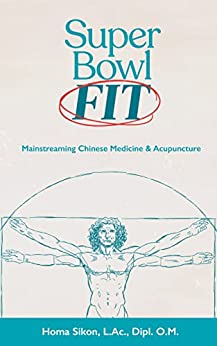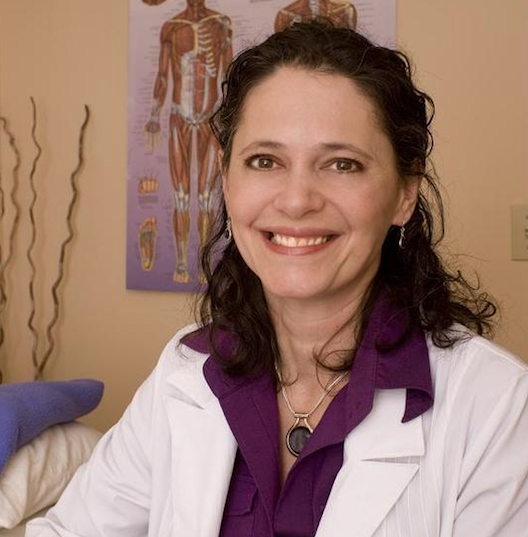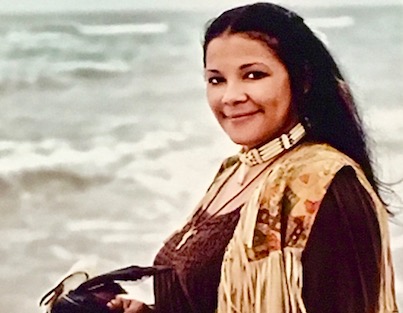Homa Sikon, L.Ac., Dipl. O.M. is a licensed practitioner of Traditional Chinese Medicine, treating patients around the globe since 2008. Her philosophy for treatment extends far beyond simple pain relief as she works to give her patients a balance of both body and mind. Graduating with Magna Cum Laude honors from Emperor’s College of Traditional Oriental Medicine in Santa Monica, Homa helps patients become their best, most energetic selves. Her background as a former engineer working on multibillion-dollar satellite systems gives Homa the problem-solving skills and attention to detail needed to treat patients with her personalized care plan. She treats patients with various disorders, from the common cold to adrenal fatigue. In addition, she provides patients of all ages with successful and practical recommendations for exercise, nutrition, and general lifestyle practices. When she is not treating patients, you can find Homa reading professional journals or taking continuing education classes. She also enjoys cooking, hiking, kayaking, and traveling with her husband.
Hello Homa Sikon, L.Ac, Dipl. OM.!
Welcome to the Acupuncturist of the Month interview.
So, how long have you been practicing acupuncture for, and what are your specialties?
I’ve been practicing acupuncture since 2008. In my practice, I treat a wide range of conditions. I have opted out of specializing in one area because I like variety and TCM’s holistic approach lends itself to successfully treating various disorders using pattern differentiation.
What inspired you to become an acupuncturist?
My inspiration to become an acupuncturist stemmed from my own health challenges. Although they were not dramatic and life threatening, my quality of life suffered from severe allergies when I moved to Los Angeles. Frequent doctor visits, realizing that insurance companies had a say in what medication my doctor could prescribe to me, and seeing those medications on television commercials suddenly opened my eyes to how the health care system operated. My doctor made health decisions for me within the constraints set for her by my insurance plan, and the incentives provided by pharmaceuticals. Eventually I was able to manage my allergies using Traditional Chinese Medicine, and found the vast contrast in the approach, i.e., treating the root cause and not just the symptoms, fascinating. In my book, Super Bowl Fit: Mainstreaming Chinese Medicine & Acupuncture, I have written about my journey to becoming an acupuncturist.
You wrote a book, amazing! What inspired you to write Super Bowl Fit: Mainstreaming Chinese Medicine & Acupuncture?
For years I’ve been looking at ways to educate the public and promote our medicine. I tried various networking groups in my local community, and joined Toastmasters to hone my public speaking so I could educate the public more effectively. I didn’t necessarily enjoy networking or public speaking, but I was determined to push myself outside of my comfort zone. With the pandemic and the lockdown, the pressure was off and gave me time to think about other ways to reach people and promote Traditional Chinese Medicine, and the idea of writing a book eventually emerged.
“Super Bowl Fit” is a wealth of information for those who have never tried acupuncture for various reasons such as fear, dismissal, etc. It attempts to establish our medicine as a true form of healthcare – a paradigm shift from the current system which I describe as the sick-care model. I have intentionally written the book in very simple terms, it is eye opening yet motivating and uplifting.
The title “Super Bowl Fit” stems from me day dreaming about seeing Chinese Medicine and acupuncture on mainstream media and television commercials. Our profession has survived as a grassroots movement, new practitioners have to heavily market and educate their community to establish a successful practice. Our medicine does not have high profit margins because it is also a very economical form of medicine, I don’t foresee TCM commercials on the national TV let alone during the Super Bowl. At the same time, many world class athletes turn to acupuncture for optimal performance, including Super Bowl players. So why can’t the general public benefit from our services to be/feel their best? Super Bowl has a widespread mainstream appeal here in the US, and recognized internationally, and I would love our medicine to have the same caliber of appeal and recognition, and become mainstream.
What advice can you give other acupuncturists who want to publish their own book?
Just do it! With Amazon and other online sources, self publishing is easy and accessible to all.
On your journey to become an acupuncturist, what obstacles did you face and how did you overcome them?
The biggest obstacle has been mainstream knowledge and recognition of how much value we add to our communities. I feel it is extremely important for all of us to keep educating the public on TCM ‘s benefits as well as the credibility of our profession. I have attempted to do so in “Super Bowl Fit”.
Share a recent success story you had with a patient. What acupuncture points, herbs, or other interventions (meditation, yoga, nutrition, etc) did you use to help them achieve results?
Treating Long Haul Covid has been one of my recent passion, as most practitioners. While Western Medicine doesn’t have a full grasp of Long Covid, using pattern differentiation and addressing the root cause is extremely successful in giving Long Covid patients hope and their quality of life back. I tend to practice Miriam Lee style with these patients, and the one formula that I find works best for most Long Covid patients is Astra Isatis by Health Concerns.
How do you feel being a former engineer has benefitted your acupuncture practice/career?
The trust and credibility I have with my former colleagues certainly helped my practice establish and grow. I went to acupuncture school full-time while I continued to work as an engineer part-time, therefore for 4 years, they witnessed my determination and the hard work I put in towards earning my license to practice . My experience as an engineer continues to play a big role in reaching a diagnosis using strong problem solving and trouble shooting skills. Additionally meridians are essentially electromagnetic fields within our bodies so restoring balance and removing stagnant energy seem very logical based on my former training.
What makes you feel inspired about acupuncture?
As TCM practitioners, we help people regain their health and dramatically improve their quality of life, often when medication and invasive treatments have failed them. I find restoring health and wellbeing extremely rewarding. Providing hope and helping people reconnect with their bodies and teaching them to trust their own healing ability are profoundly fulfilling and inspiring for me.
Looking back, what advice would you have given to the younger version of yourself, who was just getting started in this profession?
I would take more business and practice management courses. Additionally I would hire a book keeper and an accountant earlier to help in setting up my practice.
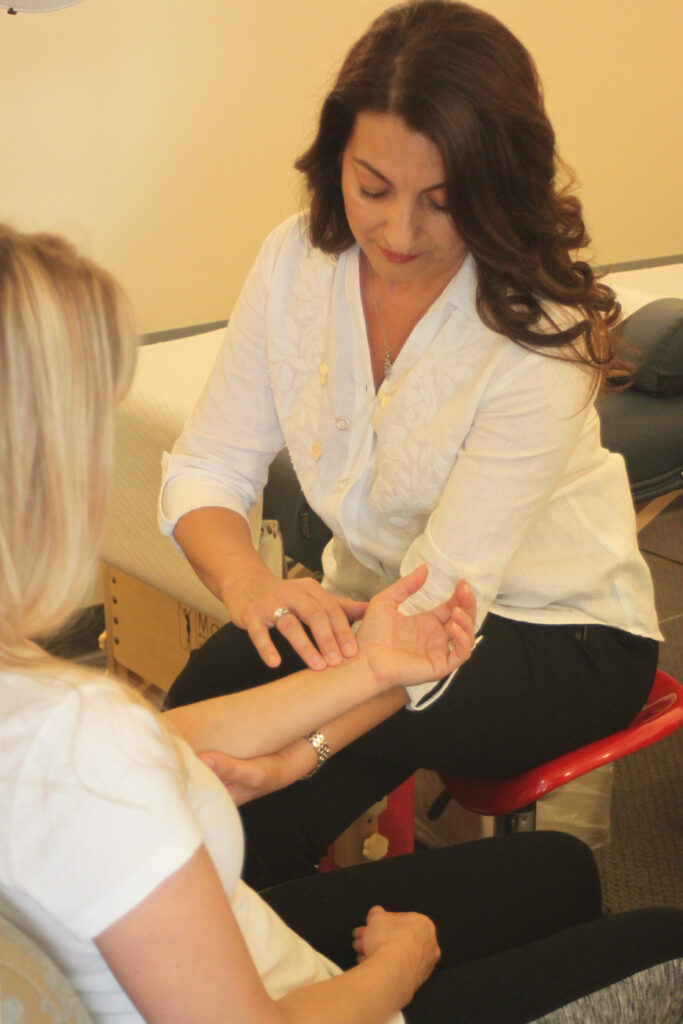
“Providing hope and helping people reconnect with their bodies and teaching them to trust their own healing ability are profoundly fulfilling and inspiring for me.” – Homa Sikon
What keeps an acupuncture practice going?
Delivering consistent results, rebooking, and word of mouth have been keeping my practice going, even during the pandemic.
What are specific roadblocks to watch out for as a new acupuncturist?
When there’s a will there’s a way. I believe new acupuncturists need to embrace wearing many hats early on. Treating patients is only one aspect of our practice, we should also think as entrepreneurs and educators. Building a practice takes time, be patient and diligent, remember that seeds take time to grow.
We have all occasionally had a patient come into our practice who is upset, frustrated, and a little angry. Maybe it’s from work, being stuck in traffic, or life in general – we have all been there! What advice would you give to fellow acupuncture students and/or colleagues on how to deal with situations like these?
These upset, frustrated and a little angry persons need you! Stay calm, don’t take it personal, don’t get involved in their world, let them know they are in the right place (your office), and that you can help them feel centered so they can better cope with life challenges.
What are your favorite acupuncture points, and why?
I love the basic points, DU 24, ST 36, 4 gates, Shen Men, PT 0. They help re-center, calm, and get the qi moving right away.
Tell us about some herbal formulas and foods you find yourself consistently recommending to your patients, friends, and colleagues. What makes these herbs/foods so helpful?
I find most people benefit from Xiao Yao San & Yu Ping Feng San where I live. Most people feel some level of stress or pressure in LA and have spleen qi deficiency and thus can benefit from Xiao Yao San. Because of our air quality, a lot of people also suffer from allergies and have wei qi deficiency so Yu Ping Feng San helps them. I’ve been jokingly accused of having a sweet potato farm. I recommend baked/steamed or roasted sweet potatoes to anyone with any level of spleen qi deficiency or those who need grounding.
Tell us about your time at Emperor’s College. What can you tell new acupuncture students about the lessons from there that you utilize to this day, and which you keep in the back of your mind but don’t use day to day?
I absolutely loved my time at Emperor’s College because of the diversity of the professors’ backgrounds, interests and their trainings. In addition to the regular academic curriculum, I had plenty of exposure to topics typically offered as CEU such as Master Tung, esoteric acupuncture, emotional disorders, dermatology, fertility, 5 elements, etc. Additionally there were the learning garden and community clinics to hone our skills and apply our classroom training.
The community was tight knit and small, a great environment to learn academically, practice clinically and grow personally. The 4 years of acupuncture school also taught me to have faith and trust that things happen for a reason, just like yin and yang relationship. This happened in very esoteric ways, for example I got laid off from my engineering job due to budget cuts twice during the 4 years, both times it was just a month or so before the preclinical and comprehensive exams; and remarkably I was rehired shortly after my exams and continued to work on the same project and with the same team until I was able to leave permanently to start practicing TCM.
Sometimes, the best resource for improving our skills is by learning from the other acupuncturists we meet along our professional journey. What is one thing you learned from a fellow acupuncturist or holistic practitioner that has helped you in your professional growth, or in your care for patients?
The one piece of advice that has stuck with me has been to be discerning, but not judgmental in patient care. You don’t have to agree with your patient’s choices, life style, beliefs, politics, etc. Meet them where they are at, help them as best as you can to be where they want to be.
The COVID-19 pandemic has without a doubt had a significant impact on the acupuncture practice community and small businesses alike. How have you been handling the COVID-19 situation as an acupuncture practice owner and individual? What advice or wisdom would you like to share with other acupuncturists who are also navigating through these precarious times?
I have been fortunate to sustain my practice, despite closing for 3 months in 2020. I continue to get new patients and have rebooking from old patients. My recommendation is to seize the opportunity to shine treating Long Covid cases and encourage the community to receive regular treatments as tune-up for preventive measures. I emphasize regular tune-ups and preventive treatments in “Super Bowl Fit”.
Do you have any daily habits or rituals that keep you at your “best-self”, both as an acupuncture practitioner and person?
My water tendencies keep me fluid so I don’t have a long term habit or ritual. I am at my best self with having a completely free day once a week, no commitments, no driving around, just being and re-centering. I cherish my weekly acupuncture sessions, where I get to surrender, let go and trust my practitioner with my care. On a daily basis, I like to spend about 10 minutes to do a few of the NY Times puzzles & games as I drink my morning tea, and enjoy as much time with our 14 weeks old rescue puppy.
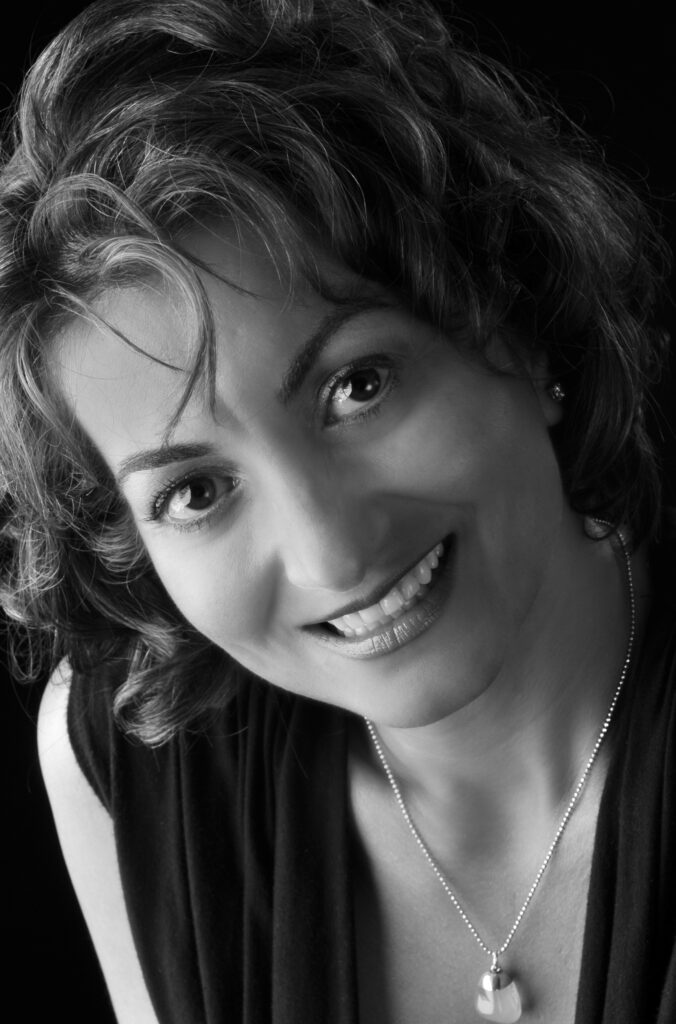
The kindest thing a patient said to you recently:
A long time patient who is in her 70’s and knows that I don’t have any children wished me “Happy Mother’s Day” because after her mom, she feels most nurtured and cared for in my care.
The funniest thing a patient said to you recently:
“Sorry I always come to you with problems, I swear there are good things happening in my life too.”
As an acupuncturist, what are you most proud of thus far in your professional journey?
Personal growth – I feel that our patients are our teachers. I learn so much from them and I am always humbled by their trust in my care and proud of the relationship we forge over the years.
If you could have a billboard with anything on it, what would it be and why?
Get Super Bowl Fit, Get Acupuncture!
What is your definition of success?
Feeling joyful, and having the freedom to choose your path.
If you could have one superpower what would it be and why?
Make time… to have many hobbies, do more of what I’m passionate about, travel, nurture my creativity.
*Rapid fire questions! *:
Morning or night? Morning because we have a new puppy.
Tea or coffee? Tea on weekdays, coffee on weekends
Sun or moon? Love both
Cupping or Tui na? Definitely cupping
Yin or Yang? Balance
Meditation or exercise? Meditation
Instagram or Facebook? Facebook
Top 3 Favorite Books? A Lesson in Chemistry, The Four Agreements, All I Really Need to Know I Learned in Kindergarten: Uncommon Thoughts on Common Things
Where can other licensed acupuncturists, students, and patients go to learn more about your work?
Acupuncture By Homa Facebook Page
Purchase Homa’s book:
Super Bowl Fit: Mainstreaming Chinese Medicine & Acupuncture
Available on Amazon (paperback, Kindle, and Audible), and iTunes

